
Nakamura, So To Meet In Final: 2022 FIDE Grand Prix Berlin Leg 3, Semifinals Tiebreaks
Yesterday a couple of things became clear: GM Hikaru Nakamura won the 2022 FIDE Grand Prix series and the results in the semifinals meant that we would have the pleasure of not just one tiebreaker but two. Although not without his share of the chances, GM Shakhriyar Mamedyarov was confidently dispatched by Nakamura, who won both games.
The second semifinal, between GMs Amin Tabatabaei and Wesley So, was a messier affair where both games, the second in particular, could have gone either way, but in the end, So won both games, ending Tabatabaei's fairy run, which in all fairness started in Riga.
The first game of the final will take place Saturday, April 2, at 6 a.m. Pacific / 15:00 Central Europe.
You can follow the games of the 2022 FIDE Grand Prix on our Events page. Chess.com is providing daily commentary on Chess.com/TV, Twitch, and YouTube. Find all of Chess.com's live broadcasts at Youtube.com/ChesscomLive.
Importantly, Nakamura's two wins elevated him to the number-one spot on the live rating list for rapid chess, replacing World Champion Magnus Carlsen. It may be either Nakamura or So who will be crowned king of the third leg and take home the crown jewels, but Tabatabaei will certainly have earned the title of the Prince of Berlin.
Nakamura-Mamedyarov
This was the tiebreaker that Nakamura had been angling for and Mamedyarov had hoped to avoid. While the games were exciting, it was clear why the players had such different thoughts about the tiebreaker ahead of today's games.
Rapid Game 1: Nakamura-Mamedyarov
When it comes to rapid and blitz play, Nakamura seems to have an armory of interesting ideas that he has tested in hundreds, if not thousands, of games online.
For his white game, he opened with the Nimzowitsch-Larsen attack, 1.Nf3 followed by 2.b3, but soon the opening transposed to a version of the Zukertort Variation of the Colle Opening. This leads to positions that are dynamically balanced but where Black, if unfamiliar with the positions, can get himself in serious trouble. Obviously, Mamedyarov is not unfamiliar with this opening and equalized without too many problems. Indeed, after Nakamura's wild 14.g4, you could argue that Black had an advantage.
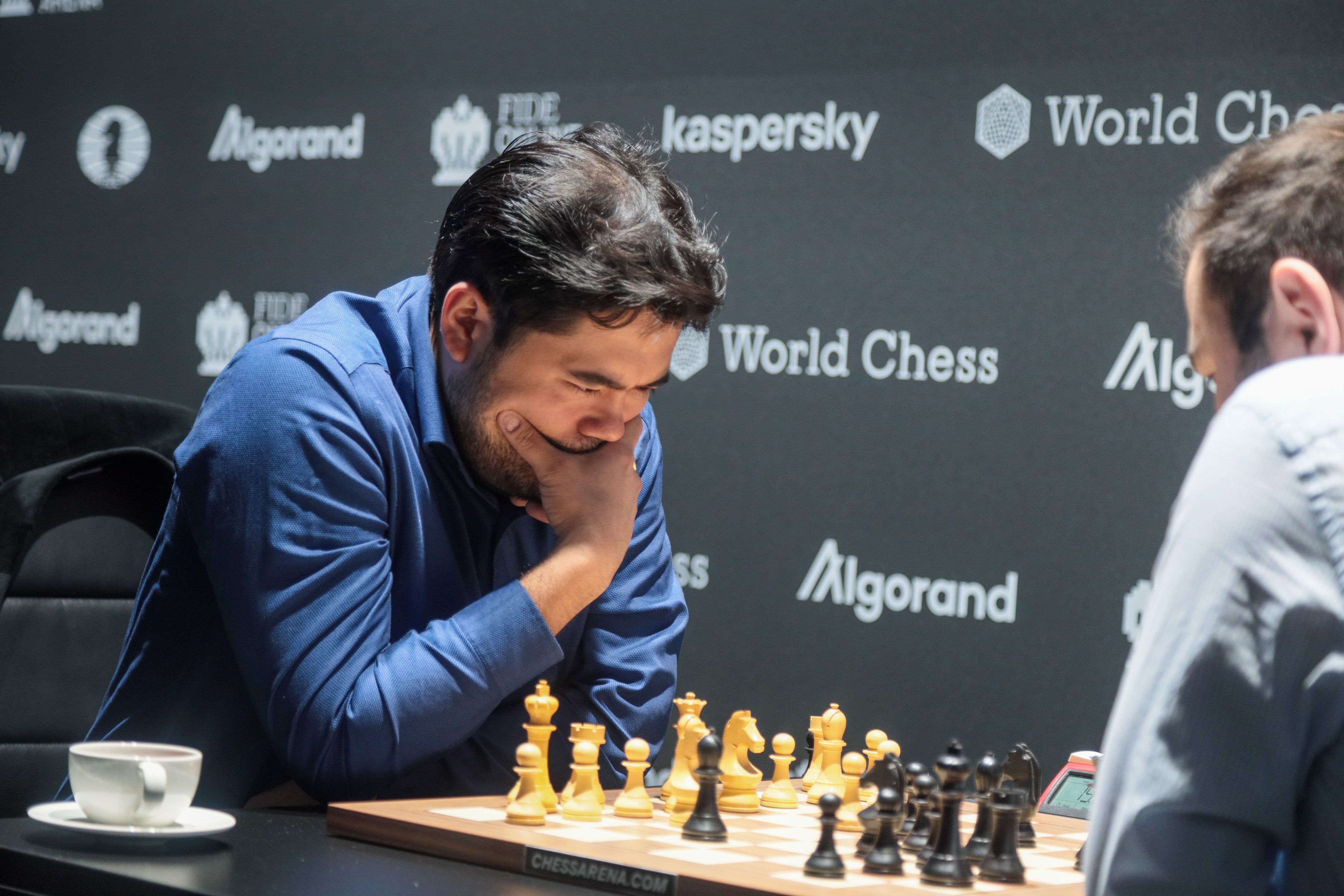
In the middlegame, things were incredibly tense and Mamedyarov seemed to have dangerous play against Nakamura's king, even declining a draw by repetition—rightly so, I might add—later gaining something the computer considered a decisive advantage. But Nakamura hung in there, constantly muddying the waters with a variety of threats, and when the clock ticked down and Mamedyarov was below, things fell apart for the Azeri grandmaster and Nakamura swooped in and efficiently executed Black.
Rapid Game 2: Mamedyarov-Nakamura
For the must-win scenario, Mamedyarov returned to the English Opening that had served him well in this event, winning a brilliant game against the German GM Vincent Keymer in the pool stage of the tournament.
Despite saying after the game that he had spent the morning watching movies instead of preparing for the game (or was that his version of an April Fool's joke on the interviewer and the rest of us), Nakamura seemed prepared against Mamedyarov's opening.
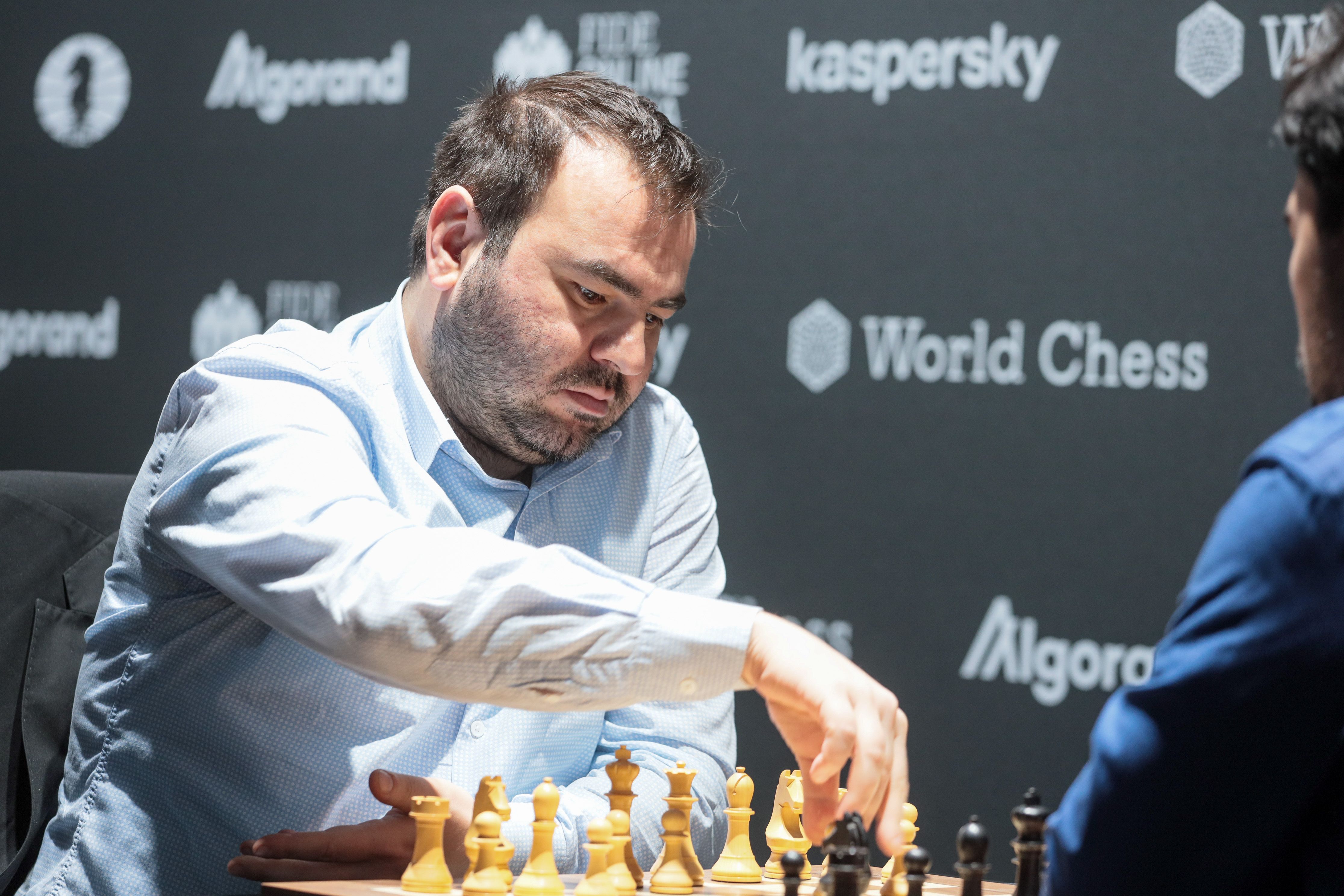
Through precise play, Mamedyarov managed to build up a nice little plus and capped it off with the excellent 17.Nxc6!, which could have put Nakamura seriously on the back foot, but unfortunately, Mamedyarov's follow-up was less than accurate—and first, the advantage went out of the door, and then equality followed the same way, leaving Nakamura to play a few accurate moves to pick up the second win.
So-Tabatabaei
If So would have been a little shaken about his collapse in the second of the regular games of this semifinal, it would have been completely understandable. It is rare for him to fold under the pressure in such a fashion. Tabatabaei, on the other hand, must have been emboldened. This event has brought victories against several 2700-rated-plus grandmasters, so what is to stop him now?
Well, for starters, So was not going to lie down and get steamrolled willingly.
Rapid Game 1: Tabatabaei-So
In the second game of their semifinal, Tabatabaei saw the value of shocking So's well-oiled and supremely-prepared machinery with some radical ideas right from the get-go. As So said after the tiebreaker: "He prepared all these little tricks in the opening, which is quite annoying."

For the purpose of this game, Tabatabaei played a super-sharp version of the Jobava London with 4.e4, immediately making the game very unbalanced, clearly trying to unsettle his opponent. And while Black did have some promising options, it was clear that the experiment worked, because White had the better chances as the players entered a queenless middlegame. However, exactly the absence of the queens seemed to take the steam out of Tabatabaei's sails. Slowly but surely, White has made many mistakes to sufficiently give Black an advantage, and once that was in So's hands, he did not let it slip. The conversion was consistent and ruthless.
Rapid Game 2: So-Tabatabaei
A few moments of trepidation must have been part of So's pregame jitters before the second game. Against GM Sam Shankland in the pool-play tiebreaker, he was completely lost with the white pieces when he just needed a draw (which he made in the end), and yesterday, Tabatabaei rattled him enough to win against him, when all he needed was a draw—albeit, in that game, it was with the black pieces. If we go further back, he also lost the second game of the rapid tiebreaker against GM Leinier Dominguez Perez in the first leg of the Grand Prix, also in Berlin, for a spot in the semifinal.
It turned out that this game was just about as jittery as you could expect
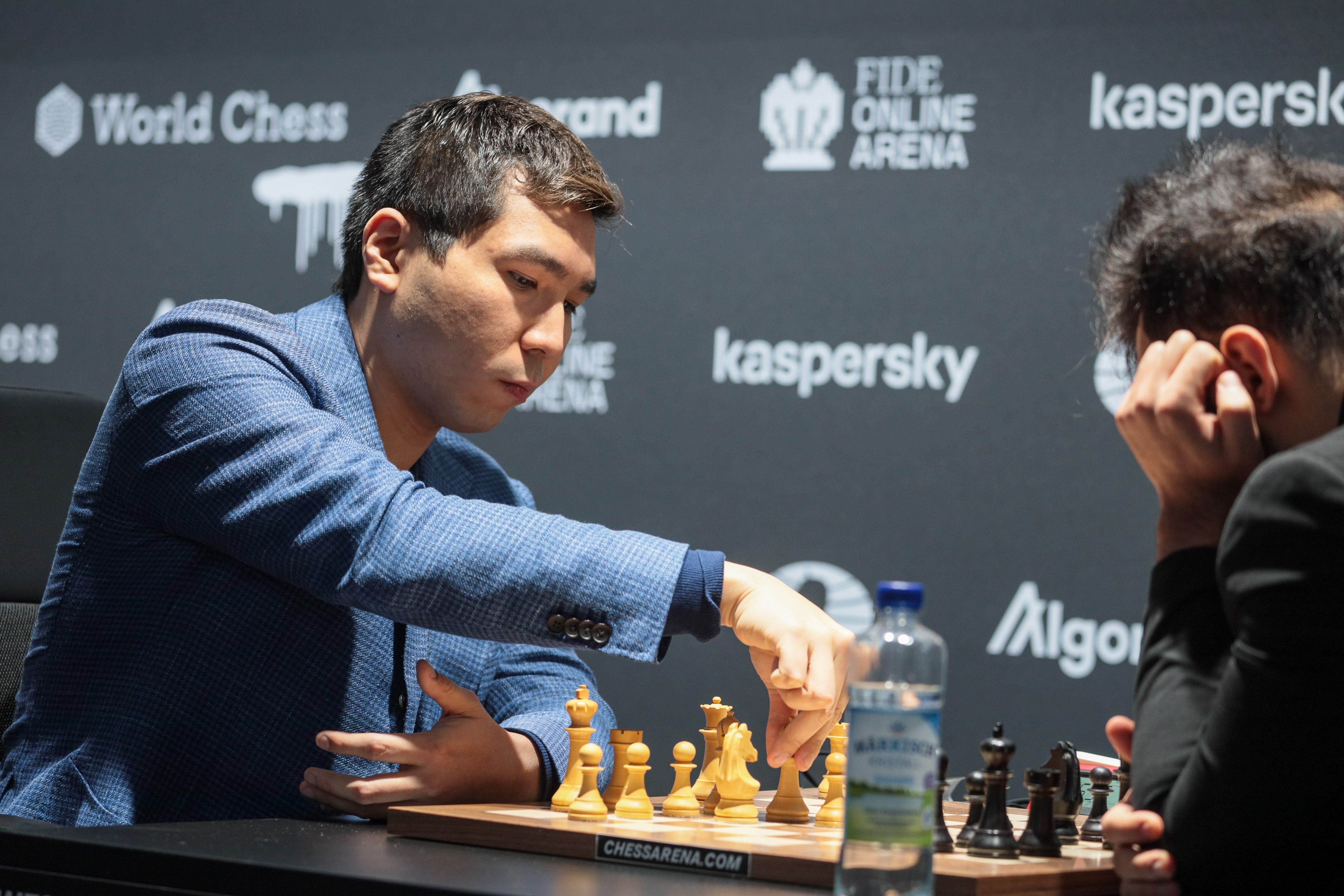
In the Classical Variation of the King's Indian Defense, the American grandmaster all of a sudden had a moment of either divine inspiration or game-two jitters when he lunged forward with 11.g4, an excellent move, but it took the game on a trajectory that So could not have wanted. Things very soon got very messy and it was a minor miracle that White survived the middlegame. Even as the players entered the endgame, Black still had excellent winning chances. But in the smoke of time trouble, Black's chances evaporated into the Berlin sky and, in the end, So even won the game.
After the tiebreaker, Wesley So was full of praise of his opponent, saying: "It was a very tough match. My young opponent put up a really good fight and today he played better than me."
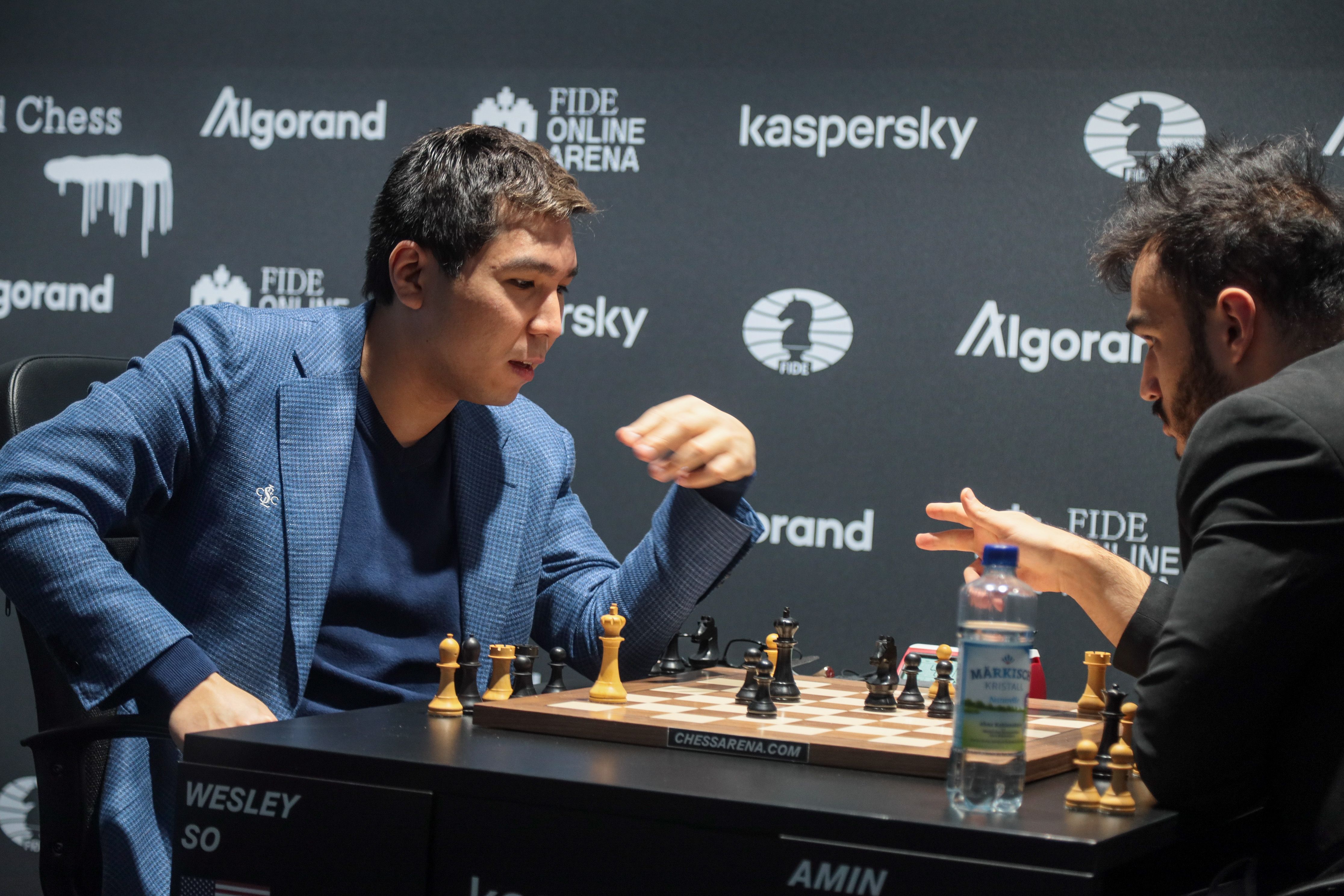
Results
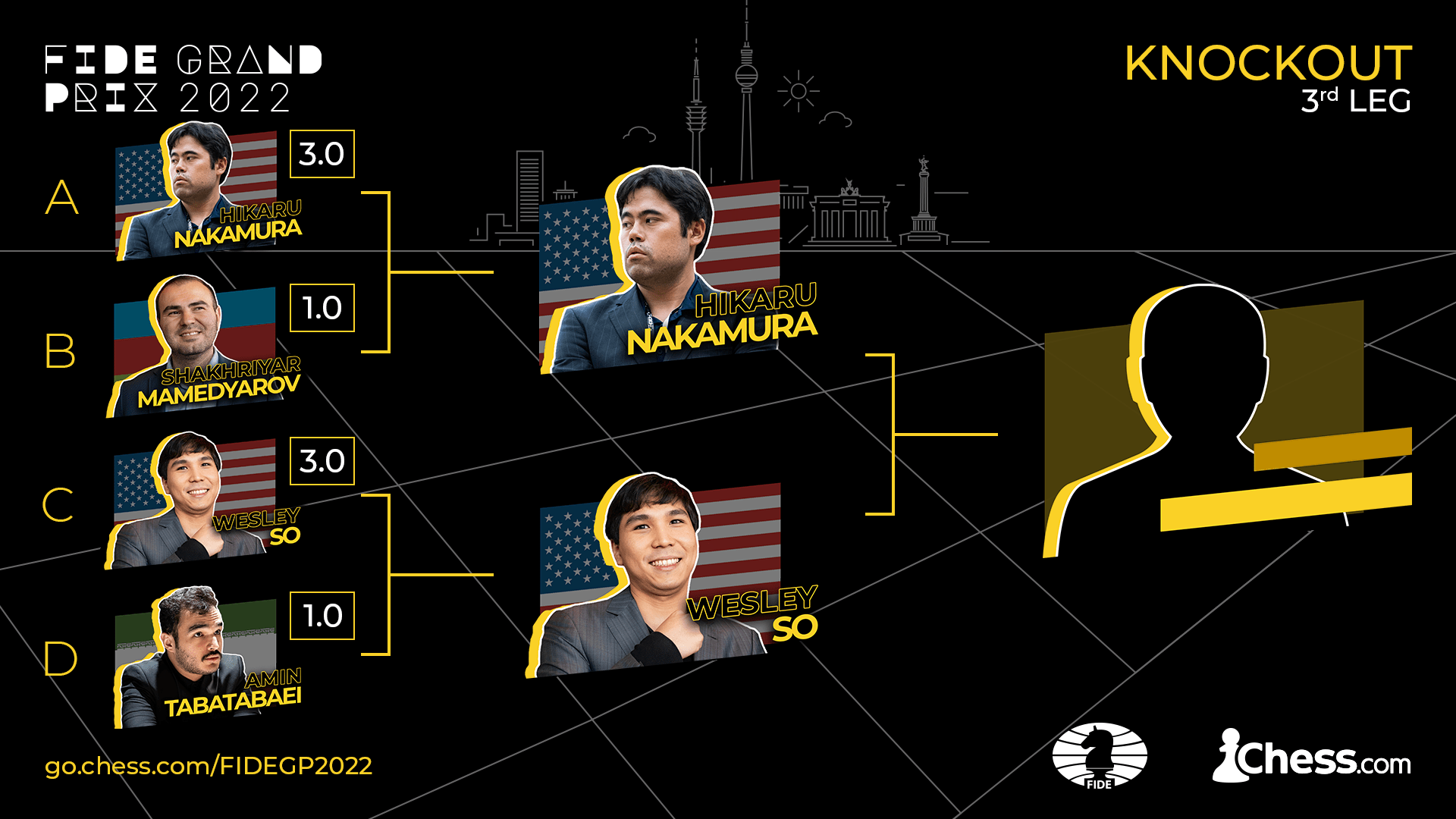
All Games - Semifinals Tiebreakers
FIDE Grand Prix Berlin is the final leg of the 2022 Grand Prix. The Berlin tournament takes place March 22-April 4. Tune in at 6 a.m. Pacific/15:00 CET each day for our broadcast.
Previous reports:
- Nakamura Early Winner Of Series: 2022 FIDE Grand Prix Berlin Leg 3, Semifinals Day 2
- Wesley So Wins First Game: 2022 FIDE Grand Prix Berlin Leg 3, Semifinals Day 1
- Mamedyarov, So Win Groups: 2022 FIDE Grand Prix Berlin Leg 3, Group Tiebreaks
- Nakamura, Rapport In For FIDE Candidates: 2022 FIDE Grand Prix Berlin Leg 3, Round 6
- Nakamura Wins Again, Leads With Aronian: 2022 FIDE Grand Prix Berlin Leg 3, Round 5
- Nakamura Wins On Demand: 2022 FIDE Grand Prix Berlin Leg 3, Round 4
- 2022 FIDE Grand Prix Berlin Leg 3, R3: Keymer Wins, Nakamura Escapes
- 2022 FIDE Grand Prix Berlin Leg 3, R2: 8 Draws
- 2022 FIDE Grand Prix Berlin Leg 3, R1: 4 Wins, Fighting Chess
- FIDE Grand Prix 2022: All The Information


